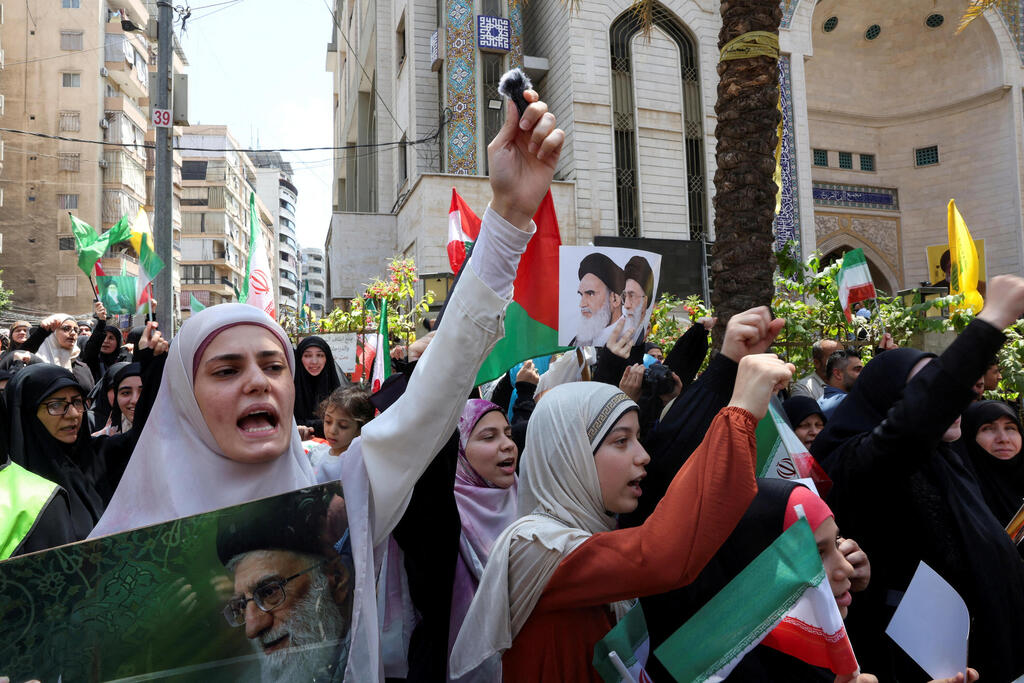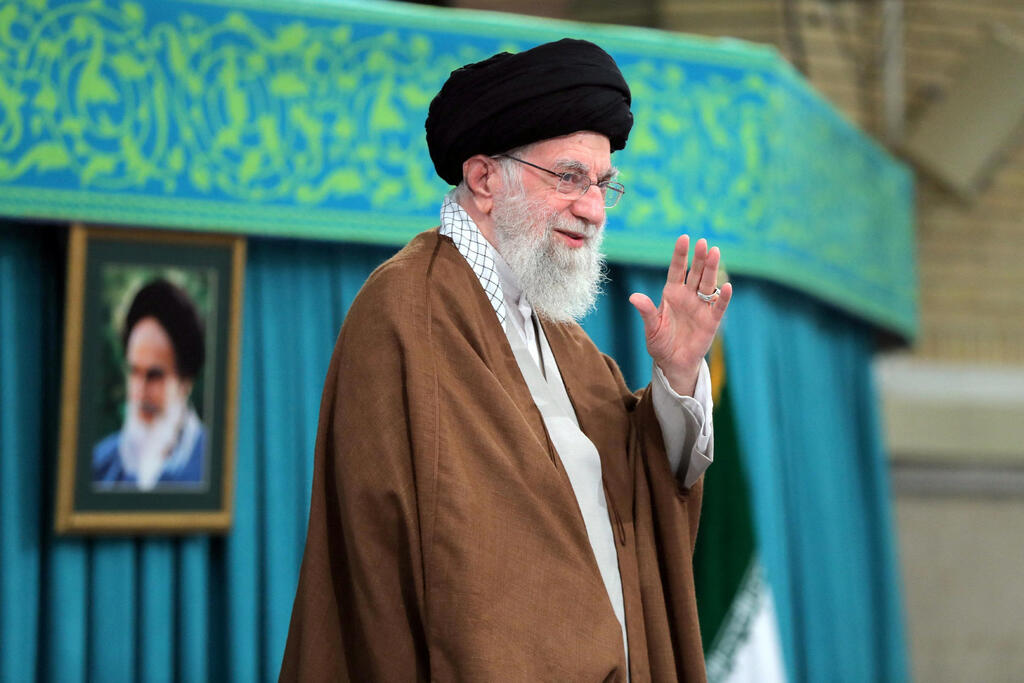The blows delivered to the resistance camp led by Iran in the current war, and particularly as part of Operation Rising Lion, are similar to those sustained by the Arab world in June 1967. They go beyond military defeat, at the heart of which are the destruction of comprehensive defense systems and difficulty promoting successful retaliation against Israel; and are putting a dent into the resistance doctrine (Muqawama) that has been fostered by Iran for decades, turned into a uniting axis among several actors in the region, was planned to take the form of a strategic maneuver (“the ring of fire”), and perceived as a compelling idea capable of leading to Israel’s extinction.
The inception of resistance is rooted in the aftermath of the Nasserist vision that promised to annihilate Israel using conventional military force. The architects of resistance sought to provide an overall alternative: asymmetry and non-state actors instead of a confrontation between regular armies; a display of lasting patience and endurance with regard to casualties and property loss; striving to bleed Israel dry using extended attrition, while thwarting its basic goal of defeating its enemy; ideological, primarily religious-Islamist, zealousness as fuel for a prolonged struggle; and a deliberate mixture of civilian and military spheres to generate dilemmas and impediments for the West in general, and Israel in particular.
October 7 was perceived by the resistance camp as the pinnacle of a series of campaigns conducted in recent decades, led by the Second Lebanon War, and was a manifestation of the belief that the circumstances enabling Israel’s annihilation had been created. In practice, for over 20 months, the parties composing this camp have been hit to the point that some have disappeared altogether: Assad’s regime collapsed; Hezbollah has been stripped of most of its military capabilities, and, for the time being, at least, is showing no motivation to resume fighting; the Houthis are content with “stinging”; and Iran, the camp leader, has sustained unprecedented blows, primarily affecting its nuclear program – a national project designed to prove its power, and ensure the survival of its regime.
Nevertheless, it is too early to draw conclusions from this war, and we must not fall into the euphoric trap of 1967 Israel. Instead, a sober worldview should be fostered, and we must not forget the trauma of October 7 that has yet to be investigated for a single moment. Gaza, where the conflict began, formerly considered the weak link in the resistance camp, has seen unprecedented destruction. However, Hamas has survived and remains dominant in the region – unbroken, facing no public uproar, and with no intention of giving up the hostages or demilitarizing – common Israeli yearnings that have not come to pass.
Public and media discourse in the Middle East is gradually beginning to show early signs of soul searching, especially in reference to the resistance camp having grown too big of an appetite: abandoning the original characteristics of terrorism and guerilla; political institutionalization (especially Hamas having turned into a ruling power), and military force buildup that challenged the ancient decree to avoid direct conflict with Israel, as it impacts the resistance organizations’ relative edge, and allows them to be struck.
Get the Ynetnews app on your smartphone: Google Play: https://bit.ly/4eJ37pE | Apple App Store: https://bit.ly/3ZL7iNv
Thus, the Arab world has voiced some criticism over the unrealistic desire to defeat Israel, and the gap discovered between self-perception, aspirations, and reality, particularly with regard to Iran and its imperialist self-image. Israel was not the only one to have misconceived and misunderstood its enemy leading up to October 7 (as well as during the ensuing war) – the other side also suffers from some twisted perceptions. Yahya Sinwar, who knew Israeli society very well after having spent a quarter century in Israeli prisons, as well as Nasrallah, were filled with contempt and a burning religious hatred toward Israel that led them to believe their own “spiderweb” theory whereby it was a weak society, spoiled and short of breath, underestimating its resilience and ability to withstand a long and bitter fight.
One must wonder, therefore, whether the idea of resistance will collapse, what the alternative will be, and will the deep-seated hostility toward Israel be collectively abandoned in favor of more moderate approaches. Israel had hoped as much back in 1967, and faced efforts toward peace as in the case of Sadat, alongside greater animosity as the wave of fundamentalist Islam rose.
 Michael Milshtein
Michael MilshteinWe may see a bipolar reaction now too. On the one hand – willingness to accept, and even collaborate, mostly by those who already supported the promotion of normalization, especially Saudi Arabia; but, on the other hand, greater hostility, vengefulness, and fear of a “Zionist hegemony” in the region. The resistance idea is being hit hard, but it is too soon to lament it, for it may father clones that probably will not amount to existential threats, but will nevertheless pose a security challenge that will require Israel to be alert and ready to initiate attacks. To truly uproot this idea would require a profound cultural and cognitive shift in the Arab and Muslim world that, for the time being, at least, is still far from embracing the spirit of De-Radicalization.
Furthermore, a major lesson must be learned from the October 7 misconception: The assumption that dramatic change in the Middle East may be promoted to provide Israel with lasting stability without addressing the issue of the Palestinians, which has proven its ability to stir regional, and even international, unrest. If and when the dust of this successful campaign in Iran – which is still ongoing – will settle, attempts to establish an “American peace”, such as the one Washington had spearheaded in the region following the First Gulf War (1990–1991), will inevitably be promoted. If Israel will cling to fantasies, such as emptying Gaza of Palestinians while continuing to fight in the Gaza Strip, not to mention developing the kind of hubris that will be accompanied by calls for annexation and resettlement, it could sabotage strategic gains, and stand in the way of geopolitically reshaping the region for the better.




